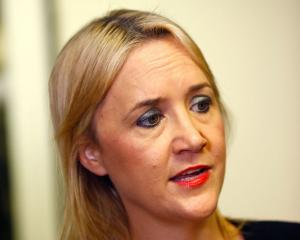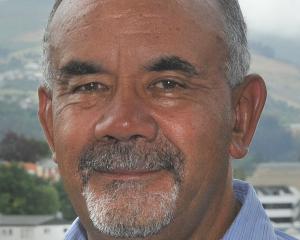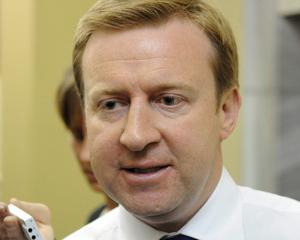Changes to the tax system are high on the Budget 2017 wish list of business advisers and representatives in Otago and it is likely some of their wishes will come true.
Budget 2017 will be released at 2pm on Thursday. The Government has already cleared the decks with announcements large and small, so Finance Minister Steven Joyce can probably focus on one main issue.
Deloitte tax partner Phil Stevenson said given it was election year, there were likely to be some sweeteners in the Budget and anything politically unpalatable would be pushed off the agenda until after the election.
''Delivering tax cuts - or the promise of tax cuts - is in every political playbook on the right-leaning side of the House come election time.''
However, it was more likely any tax relief would be targeted, by shifting the thresholds at which the higher tax rates started rather than lowering the rates, he said.
Dealing with bracket creep, where people found themselves paying more tax as a result of inflation, was good economic policy, by providing tax relief but making it look less like a lolly scramble than a cut to the tax rates.
It fitted with the message of responsible economic stewardship National had been portraying to voters since coming into office, Mr Stevenson said.
Capital gains tax would not be seen anywhere and Mr Stevenson would be surprised to see any more moves targeting property investors, such a ring fencing of tax losses.
Labour announced plans to stop property investors claiming losses from their personal income, saying the $150 million saved would be used to insulate houses.
Any moves to assist home ownership and housing affordability issues would be welcome, he said.
''The recent Australian Budget included changes to promote savings for first home ownership. It is possible we could see some tweaks to the KiwiSaver entitlements relating to first home purchases.''
Otago-Southland Employers Association chief executive Virginia Nicholls agreed tax should pay a large part in the Budget.
''Reducing the business tax rate from 28% to 20% or lower is our highest priority. The business take is currently over half a billion higher than forecast.''
Lower business tax encouraged investment and increased productivity and employment. Reducing personal tax would give more spending power to households and allow household debt to reduce and help stimulate the economy, she said.
Other items on the association's wish list included investing in growing exports.
The New Zealand economy depended on a diversified and growing export sector. Investment in initiatives to help exports to grow, such as supporting the negotiation of free trade agreements, enabling exporters' access to markets and assisting exporters in complying with regulatory requirements, was good for the economy.
Investing in innovation was also important, Mrs Nicholls said.
''New Zealand companies will compete more effectively by innovating products, services and processes and through rapid commercialisation of new ideas.''
Employers also wanted investment in tourism infrastructure, including Central Otago. As a matter of urgency, the association wanted investment continued in the first instance in Queenstown, followed closely by Wanaka.
''We are looking forward to an action plan for investment in roading, car parks, walkways, cycleways, toilets and other tourist facilities.''
Affordable housing in Queenstown and Wanaka for workers was a priority, she said.
The problem was illustrated recently when NZSki, in Queenstown, asked locals to provide rooms in their homes for 250 ski workers who were starting at fields in June.
Otago Chamber of Commerce chief executive Dougal McGowan supported greater investment in education for the region.
That included increased funding in the learning to work transition stage and working to learn.
''More support is needed in managing the transitions people face and help is needed for businesses who take on apprentices, to increase the likelihood of success.''
More regional research institute funding would build on a highly successful programme and provide an extension to include more projects. That would benefit regional development and lift science and technological growth while supporting innovation, he said.
Increased funding for the Regional Business Partnership would support the increased numbers in small to medium-sized businesses throughout the country and the adviser network, helping them become more sustainable and improve employment opportunities.
And in what has become an annual plea by business representatives, Mr McGowan called for an urgent reduction in compliance costs for SMEs, particularly in areas of health and safety and consenting.












